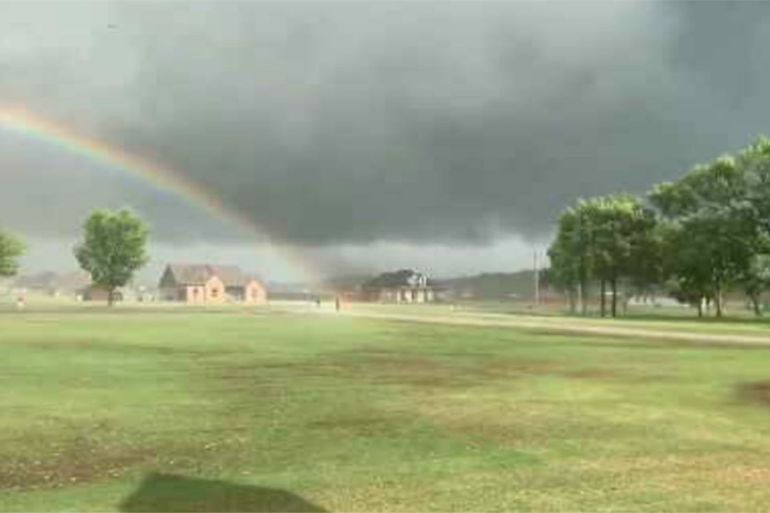Severe storms hit southern United States
At least five people killed as tornadoes rip through Texas and southern Oklahoma.

At least five people were killed and dozens injured when tornadoes struck parts of Texas and southern Oklahoma causing extensive damage.
The storms brought heavy rain, baseball-sized hail and winds in excess of 130 kilometres per hour (80 miles per hour) on Wednesday.
Keep reading
list of 4 itemsAfter the Hurricane
World’s coral reefs face global bleaching crisis
Why is Germany maintaining economic ties with China?
One person died when an apparent tornado tore through Marshall County in southern Oklahoma and damaged at least two businesses.
The Oklahoma storm hit Madill, near the Red River at about 4:30pm local time on Wednesday, causing widespread damage to the town, including its residential neighbourhoods, said the city’s emergency manager, Donny Raley.
Marshall County Emergency Management Director Robert Chaney said the person’s body was found close to J&I Manufacturing, a trailer factory about 10km (six miles) southwest of Madill.
Chaney added he had no other information on the victim, but said the suspected twister hit the plant just as its workforce was leaving for the day and caused severe damage.
The storm also hit the Oklahoma Steel and Wire plant, a fence wire manufacturer on the south side of Madill, the county seat of Marshall County and home to about 4,000 residents.
Another damaging storm, which was also likely to be a tornado, swept through a county in southeast Texas, causing widespread destruction.
The Polk County Office of Emergency Management said in a statement three people died and at least 20 were injured in Onalaska, Texas.
Onalaska is about 145km (90 miles) north of Houston. A declaration of disaster was issued on Wednesday night after the county was hit.
The storm system is now moving into the southeast, with the biggest tornado threat for Georgia and Alabama. Damaging winds are also expected from New Orleans to the Florida Panhandle, and further north across the Carolinas.